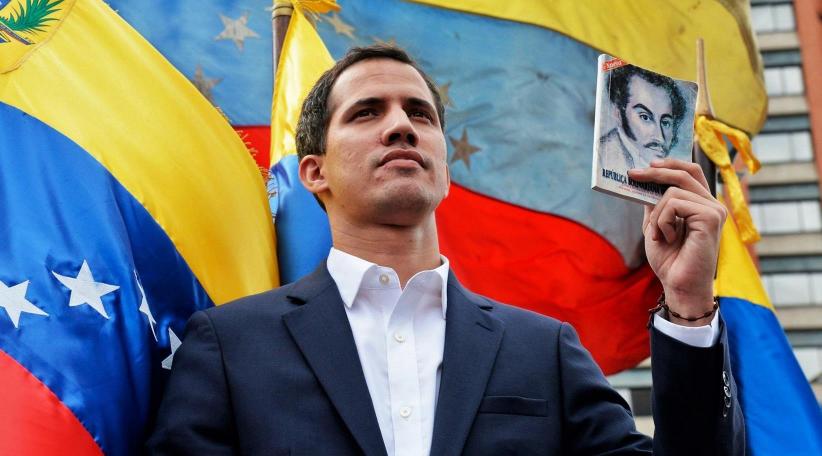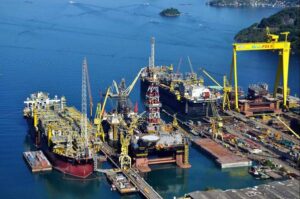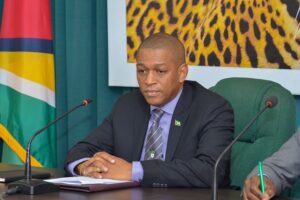
(Argus, 11.Feb.2020) — Juan Guaido is finally returning to Caracas today, with a vow to dislodge the “usurper” so he and his team of exiles can Make Venezuela Great Again.
“Where’s Guaido?” is a question that often echoes among Venezuelan opponents of President Nicolas Maduro. Young opposition leader Juan Guaido is hardly the bespectacled Waldo, but his whereabouts seemed just as inscrutable following a rockstar appearance in Florida and a head-of-state reception at the White House last week, the climax of a more than three-week tour that started in the EU and Canada. He is finally returning to Caracas today, with a vow to dislodge the “usurper” so he and his team of exiles can Make Venezuela Great Again.
The cliffhanger over when Guaido would resurface at home helped to distract from thornier questions vexing the opposition, like “Where’s the oil?”. Despite US oil sanctions imposed in January 2019, Venezuela’s state-owned PdV has stabilized production just enough to keep exports humming, especially for its close Russian state-controlled partner Rosneft and joined-at-the-hip ally Cuba. But the destinations of Venezuela’s crude exports and the origin of gasoline and diluent imports are opaque at best. But what’s frustratingly clear for the opposition is that oil companies headquartered in countries that recognize Guaido’s interim presidency are still engaged in Venezuelan oil business, which is seen as helping Maduro. Spain’s Repsol regularly lifts Venezuelan crude as payment from PdV for its production, even sending products back to Venezuela if the value of the crude supply exceeds the debt. Italy’s Eni, Repsol’s gas partner in Venezuela, appears to be doing the same.
The sanctions allow such debt-related transactions. Even US-based Chevron is clinging to its Venezuelan operations through repeated sanctions waivers. And with its PetroPiar joint venture restored to heavy-crude upgrading mode, the major is permitted to market its own share of the resulting syncrude to compensate for maintenance of its operations. India’s ongoing imports hurt too, but at least Delhi doesn’t purport to back the opposition. Then there are the mystery Venezuelan cargoes bound for Singapore or Malaysia that might end up in China.
The sanctions don’t allow US refineries to take Venezuelan crude, but that’s cold comfort for Guaido’s technocrats who are desperate to stanch Maduro’s oil revenue and disrupt its partnerships. The White House is threatening tighter sanctions, but all it recently targeted is Venezuelan national airline Conviasa, a move critics say makes domestic flights more risky for Venezuelans who can still afford them.
Another question on opposition minds is “Where’s the money?”. The US Agency for International Development (USAID) is funneling support and the US Treasury is permitting some arbitrary access to PdV’s frozen US funds. But Guaido’s weary team has no independent revenue to pay salaries, office rents or lawyers whose pro-bono work goes only so far. And with barebones oversight, scarce funds are vulnerable to slipping into the wrong pocket.
One would think PdV’s US refining subsidiary Citgo, which is in the nominal hands of Guaido, could offer a financial lifeline. But that revenue is off-limits. So with Maduro entrenched behind the US dollars now flooding Caracas, dodgy Venezuelan bankrollers might be too hard to resist for some exiles bent on ousting him at any cost.
The overarching question for
many Venezuelans is “When?”, in all its quixotic forms. When will Maduro give
up? When will the US take military action? When will Venezuela recover its
former glory?
More realistically, the question is when will Venezuelans return to the ballot
box, flawed as it is. National Assembly elections should happen this year, and
Guaido is under pressure to abandon a boycott strategy that has only
strengthened Maduro and nourished a fringe opposition that espouses
participation. The US is quietly mediating in the hope of overcoming the
opposition discord. The outcome might well mean sacrificing the “end of the
usurpation” roadmap at the altar of political unity. Guaido and his hawkish
circle will need a face-saving way out if they are to retain their leadership.
This is happening just as US election season heats up, shifting the question in Washington to “Where are the votes?”. Guaido’s flashy Florida visit will deliver some to his mercurial White House patron. But it’s back in Venezuela where he will face the hardest questions from the people he left behind.
By Patricia Garip, Editor
***


Si vous envisagez d’utiliser une application d’espionnage de téléphone portable, vous avez fait le bon choix.